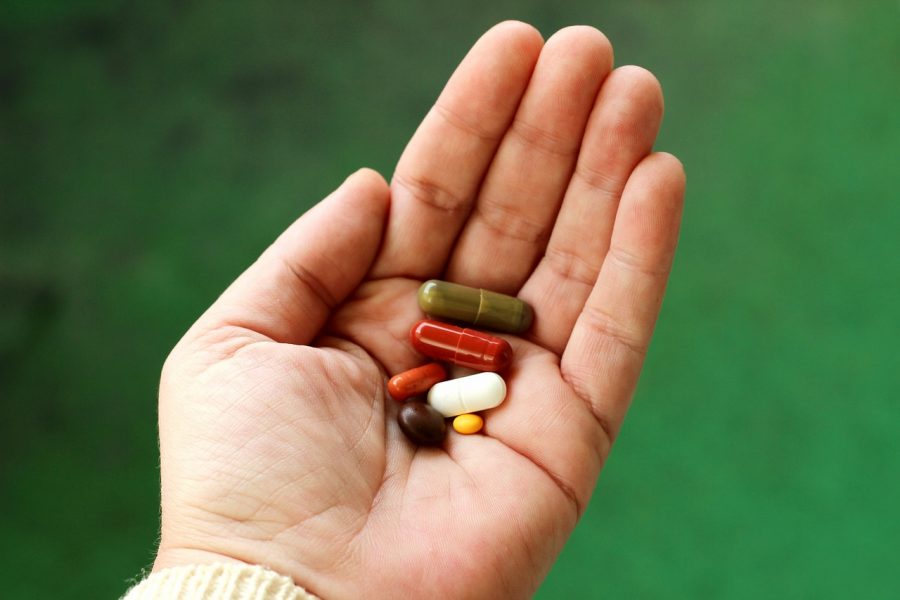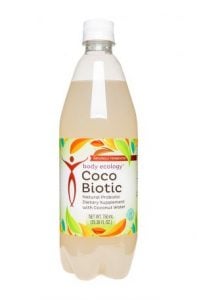
Rethinking multivitamins: Do you need one?
Around half of all American adults take a daily multivitamin, but are these pills necessary?1,2 Or, worse, could they be harmful?
Want to learn more about the Body Ecology Way of Living? Browse our bestselling products and follow us on Facebook for more gut-smart news in your feed.
While there are some nutrition experts who recommend a daily multi, many more don’t. Researchers at Johns Hopkins, for instance, looked at the evidence and wrote an editorial in the journal Annals of Internal Medicine titled “Enough Is Enough: Stop Wasting Money on Vitamin and Mineral Supplements.”2 That says it all, really.
So, why this lack of love for something that half the U.S. adult population is taking? In short, there’s little evidence to support the idea that multivitamins are beneficial. Instead, you’re much better off getting your nutrients from real food, prepared properly, so that you digest them — and eating fermented foods to help ensure your meals are well-digested.
What do the studies say about multivitamins?
The Johns Hopkins analysis looked at data from more than 450,000 people and concluded that:1 Multivitamins did not reduce the risk of cancer or heart disease, cognitive decline, or an early death.
While research has found that certain nutrients, including vitamin E and beta-carotene, could be harmful to health when taken at high doses in supplements, multivitamins have notably small doses of many different vitamins and minerals.3
There are actually very few studies that look at the impact of daily multivitamins. The Physicians’ Health Study II is probably the best study so far, but even this looked only at male physicians, which is hardly a representative sample of the whole population.4 Still, the study was large and randomized and followed the men for more than a decade while they took either a placebo or a multivitamin daily.
Here’s more detail on the Physicians’ Health Study II and what researchers observed about the effects of long-term multivitamin use:
- Cancer: Men were 8 percent less likely to be diagnosed with cancer. The greatest protection was seen in men with a history of cancer.
- Vision: Lower risk of developing cataracts.
- Cardiovascular disease: No confirmed protection against strokes, heart attacks, or death from CVD.
- Brain: No protection against declining memory or mental skills.
- Caveat: Because of PHSII’s design, the findings on memory loss and vision are somewhat more likely to be chance findings than the cancer and cardiovascular disease results.
Overall, the results were, let’s just say, inconclusive:
- There were modest reductions in the rates of cancer and cataracts in the multivitamin takers, but the men weren’t any better protected against cardiovascular disease or cognitive decline.
- All in all, multivitamins didn’t come out looking to be worth the money or the hassle of remembering to pop a daily pill.
There’s one general exception, however, which is that anyone who might become pregnant or who is pregnant would likely benefit from taking a prenatal multivitamin that contains at least 400 mcg of folate and all the other B vitamins since B vitamins should be taken together. Check the label carefully and avoid prenatals that have a synthetic form of folate, folic acid. Folate (and folate-rich foods) help prevent neural tube defects when taken before and during pregnancy.5
For everyone else, if you have concerns that your diet is lacking nutrients, a “multivitamin” may be a false reassurance making you think you’ve solved the problem. The best solution is to address the dietary inefficiencies.
Of course, in some areas, such as ”food deserts” here in the U.S. and around the world, this just isn’t possible. Then perhaps a multivitamin is better than nothing and is an insurance policy against serious nutrient deficiencies. If you have access to good food though, and the means to buy it, choosing a healthy diet is definitely the way to go.
Donna’s note: I’ve often wished that in these impoverished and undernourished areas around the world that people could be taught to grow and ferment vegetables like cabbage, carrots, garlic, and ginger. They not only contain beneficial microbes that will help ensure more assimilation of the nutrients they can obtain but also provide vitamin C. The microbes in them make more nutrients like vitamin K and the B vitamins, including folate.6
As for minerals, probiotic-rich fermented foods provide iron, copper, calcium, magnesium, and manganese.7 Such a simple thing to do to create far better health, not to mention the support this would provide to their immune systems.
“Like many, after 18 years of paying copious amounts of money on doctors/herbs/supplements, I am so very grateful for what Donna has made available to us. I think she is the Midas of Gut Health. Strongly suggest getting her Body Ecology Diet book.” Here’s where you can get your own copy of The Body Ecology Diet.
Skipping the multi? Where to find natural nutrients
If you’re keen to ditch the multivitamin, it’s smart to ensure your diet provides enough of the right nutrients for good health.
In practice, for most active people this means eating two to three nutrient-rich meals a day that include:
- Fresh, frozen, or cultured produce – Aim for at least two servings of vegetables at every meal. They can be root vegetables, dark green leafy and cruciferous vegetables, and vegetables from the ocean. They can be eaten raw, lightly steamed, or otherwise cooked to help retain nutrients.
- Fruits like lemons, limes, grapefruit, and berries – These are your best choices since they’re lower in sugar and less likely to feed a yeast, mold, or other gut infection.
- Whole grains, nuts, and seeds – These are a good source of fiber, healthy fats, protein, and nutrients, including B vitamins, vitamin E, and essential minerals. (But please, steer clear if you have a virus.) And be aware that most nuts and seeds are high in oxalates. Quinoa and millet are as well. We recommend you boil them in a pot of water until soft (like you would noodles) and then pour off that cooking water. Sprouted quinoa is lower in oxalates.
*At Body Ecology, we encourage you to avoid the vegetables that are high in oxalates, like spinach, swiss chard, and beets. Beets when fermented are not high in oxalates as the microbes degrade the oxalates. Sweet potatoes are high in oxalates, but if you boil them in water until they’re soft and pour off that water, you lower the oxalate content.
You can also take digestive enzymes with (or right after) a meal to assist in digestion. Many people are deficient in hydrochloric acid and do not digest protein well. Assist Dairy & Protein works in the stomach as does Assist Full Spectrum. The small intestine is where proteins, fats, and carbohydrates are digested, absorbed, and sent into the bloodstream. Our Assist SI has the necessary enzymes to assist with digestion in the small intestine. If you follow the food combining rules, you’ll find your meal much easier to digest, and this too helps with assimilating essential nutrients.
Again, while you might think that multivitamins can be a low-cost, convenient, and relatively low-risk way to temporarily top up any gaps in your diet, over the longer-term, it’s far better to get enough sleep, exercise regularly, find healthy ways to manage stress, and, of course, eat the nutrient-rich foods that we recommend in Body Ecology.
If you’re worried about specific nutrient deficiencies — perhaps because you carry genetic variants that suggest you don’t metabolize certain vitamins, minerals, or fatty acids all that well — consider getting blood tests to see how you’re doing. If you’re running a bit low, focus on foods that provide more of those specific nutrients and maybe take an individual nutrient supplement in a highly bioavailable form in the meantime.
REFERENCES:
- 1. Cowan AE, Jun S, Gahche JJ, et al. Dietary Supplement Use Differs by Socioeconomic and Health-Related Characteristics among U.S. Adults, NHANES 2011⁻2014. Nutrients. 2018;10(8):1114. Published 2018 Aug 17. doi:10.3390/nu10081114.
- 2. Guallar E, Stranges S, Mulrow C, Appel LJ, Miller ER 3rd. Enough is enough: Stop wasting money on vitamin and mineral supplements. Ann Intern Med. 2013 Dec 17;159(12):850-1. doi: 10.7326/0003-4819-159-12-201312170-00011. Erratum in: Ann Intern Med. 2014 Jan 21;160(2):143. PMID: 24490268.
- 3. Lock M, Loblaw A. Vitamin E might increase risk of death. Can Fam Physician. 2005;51(6):829-831.
- 4. Gaziano JM, Sesso HD, Christen WG, et al. Multivitamins in the Prevention of Cancer in Men: The Physicians’ Health Study II Randomized Controlled Trial. JAMA 2012;Oct 17.
- 5. Pitkin RM. Folate and neural tube defects. Am J Clin Nutr. 2007 Jan;85(1):285S-288S. doi: 10.1093/ajcn/85.1.285S. PMID: 17209211.
- 6. LeBlanc JG, Laiño JE, del Valle MJ, Vannini V, van Sinderen D, Taranto MP, de Valdez GF, de Giori GS, Sesma F. B-group vitamin production by lactic acid bacteria–current knowledge and potential applications. J Appl Microbiol. 2011 Dec;111(6):1297-309. doi: 10.1111/j.1365-2672.2011.05157.x. Epub 2011 Oct 10. PMID: 21933312.
- 7. Scheers N, Rossander-Hulthen L, Torsdottir I, Sandberg AS. Increased iron bioavailability from lactic-fermented vegetables is likely an effect of promoting the formation of ferric iron (Fe(3+)). Eur J Nutr. 2016;55(1):373-382. doi:10.1007/s00394-015-0857-6.









